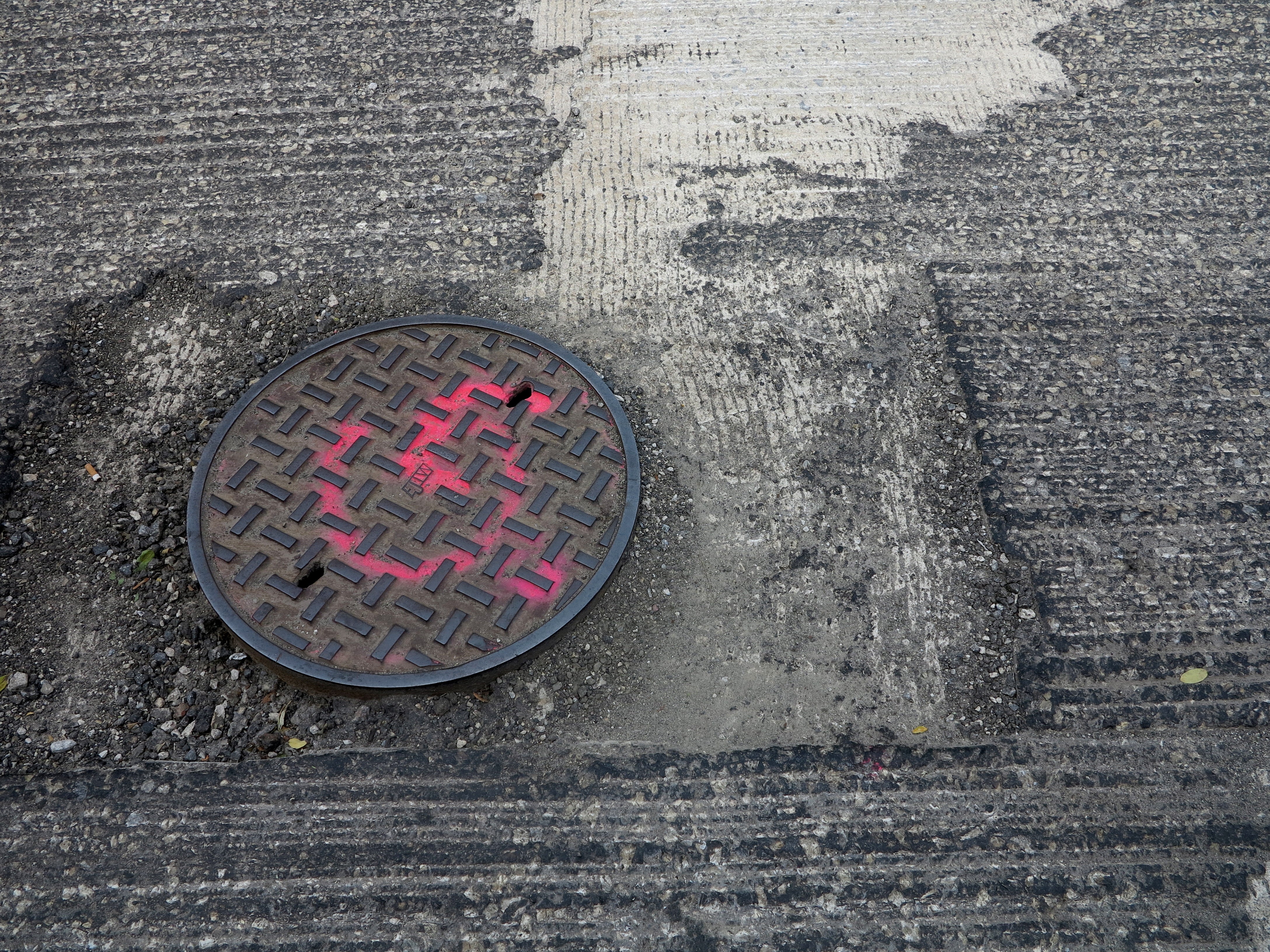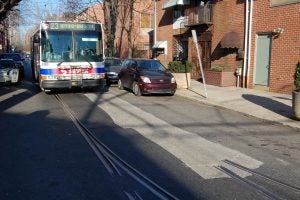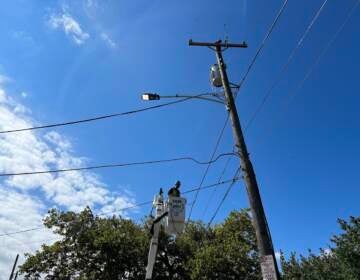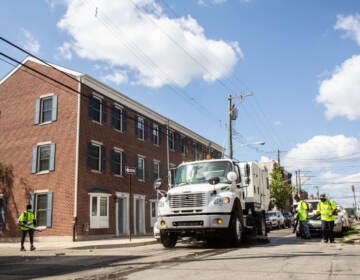Streetsplaining: Why resurfacing means a dozen days of dimpled roads

To bicyclists, road repaving feels a lot like pledging a fraternity: it’s a real pain in the ass for a bit and then three or four years of smooth sailing.
And while the experience isn’t quite as jarring in a car, few drivers enjoy the rumble strip sensation of driving over a newly milled, but not yet repaved, street.
So what gives? Why isn’t there a paver right behind the milling drums, coating the freshly-dimpled pavement with a piping hot layer of asphalt? Why do some streets sit untouched and uneven for over two weeks before Streets Department workers return to smooth over the situation?
“Manholes,” says Darrin Gatti, chief engineer for Philadelphia’s Streets Department. “The utilities have to come in and adjust the manholes – that’s one of the reasons for the time between milling and resurfacing.” Utility companies like PWD, PGW and PECO own the manholes, not Streets as many folks assume. That’s why the technical term of manhole is “utility cover” and not “random metal disc embedded in the street.”
According to Gatti, the problem is one of coordination between Streets and the utility companies, who don’t exactly have full time staff sitting around, just waiting for the city to call. “It’s largely dependent on how much the utilities can handle at any one time,” said Gatti. “If there is a bad storm, PECO won’t be adjusting manholes, they’ll be working to get the power back on.”
Gatti acknowledged that the delay between milling and paving is “probably the biggest complaint about resurfacing,” and pointed out that Streets has reduced the average gap down to two weeks – not too long ago, a three to five week delay wasn’t uncommon. “We’re trying to get it down to less than one [week],” said Gatti. “Every year we look at new ideas, trying to get procedures in place to expedite the process.”
No matter how efficient they get, there will always be longer delays when manholes need to be replaced. Streets needs to swap out broken or damaged manholes before paving because, “if we don’t do it then, the utilities will need to dig up a brand new street to fix a manhole later.”
WHYY is your source for fact-based, in-depth journalism and information. As a nonprofit organization, we rely on financial support from readers like you. Please give today.







